Sainsbury's halts talks on Nisa buyout
Supermarket is waiting to see outcome of review of Tesco-Booker deal
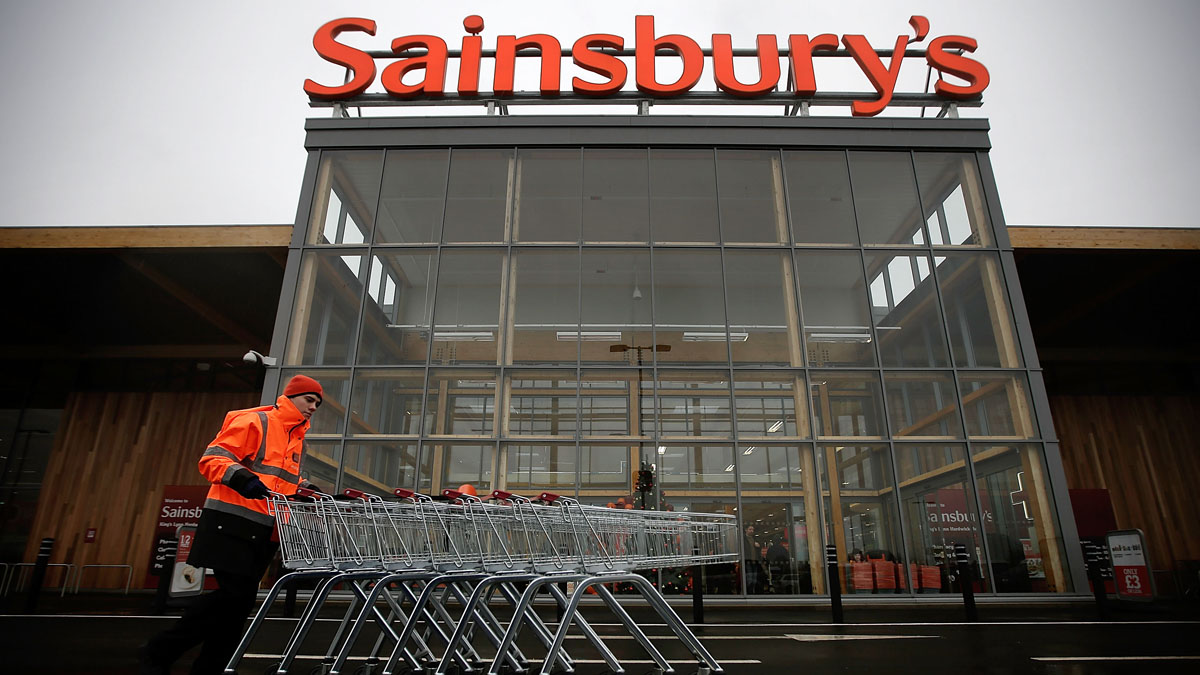
A free daily email with the biggest news stories of the day – and the best features from TheWeek.com
You are now subscribed
Your newsletter sign-up was successful
Sainsbury’s sales fall after it scraps multi-buy deals
08 June
Sainsbury’s sales have gone back into decline after it posted a 0.8 per cent fall in like-for-like sales for the first quarter to 4 June.
This means Britain's second-biggest supermarket is again reverse after sales inched 0.1 per cent higher in the fourth quarter – the grocer's first increase in more than two years.
The Week
Escape your echo chamber. Get the facts behind the news, plus analysis from multiple perspectives.

Sign up for The Week's Free Newsletters
From our morning news briefing to a weekly Good News Newsletter, get the best of The Week delivered directly to your inbox.
From our morning news briefing to a weekly Good News Newsletter, get the best of The Week delivered directly to your inbox.
Responding to the latest figures, chief executive Mike Coupe said price pressures meant "the market will remain competitive", but insisted the supermarket will "continue to outperform our major peers".
Analysts believe sales were hit by the abolition of the store's "buy one get one free" offers and its brand-match guarantee. Sainsbury's replaced those promotions with overall lower prices after a damning report by the competition regulator said multi-buy deals across the industry routinely mislead customers.
The big four supermarket chains have been embroiled in an increasingly fierce price war as German discounters Aldi and Lidl expand across the UK.
Industry chatter had predicted a bigger decline for Sainsbury's, with some forecasting it would be as high as 1.4%. Even this would have implied a decent performance in terms of transaction volumes at a time when food price deflation is running at around 1.5 per cent.
A free daily email with the biggest news stories of the day – and the best features from TheWeek.com
As such, the City seemed to initially shrug off news of the lesser setback, with shares rising three per cent in early trading. However, the stock later swung into a one per cent decline.
In a silver lining for the grocer, its network of smaller convenience stores enjoyed growth of more than six per cent while online sales jumped eight per cent, in part thanks to the launch of a new app. Sainsbury’s was also keen to highlight strong growth in its clothing range.
However, a massive setback could be on the horizon. The Competition and Markets Authority is examining Sainsbury’s agreed £1.4bn takeover of Argos-owner Home Retail Group to see if the deal would lead to "a substantial lessening of competition" for consumers.
Sainsbury's to reveal more poor sales figures this week
06 June
Sainsbury's will post its latest results this week, with the retail giant facing a depressing combination of weak sales and scrutiny from the industry watchdog.
Analysts expect boss Mike Coupe to admit that sales have been hit by scrapping the store's "buy one get one free" offers and the brand-match guarantee.
Sainsbury's replaced those promotions with overall lower prices after a critical report by the competition regulator said multi-buy deals across the industry routinely mislead customers. However, shoppers seem nonplussed by the change.
The Belfast Telegraph says analysts are anticipating largely flat like-for-like sales, ranging from a fall of 0.5 per cent to a gain of 0.5 per cent. However, The Sunday Times forecasts a decline of 1.4 per cent.
Kantar Worldpanel last week posted data closer to the latter prediction. It claimed that Sainsbury's saw sales fall by 1.2 per cent in the 12 weeks to 22 May, dropping its market share to 16.2 per cent from 16.5 per cent a year earlier.
Any fall would be a blow, particularly after the chain posted a 0.1 per cent rise in the previous three months - its first quarterly like-for-like sales growth for more than two years. The grocer's woe was worsened by the news that its long-time nemesis Tesco's share has risen after two years of declines, rising to 28.6 per cent from 28.3 per cent a year earlier.
Sainsbury's had been the best performer of the big four for the past year, amid an onslaught from German discounters Aldi and Lidl.
The industry predictions were made just days after the Competition and Markets Authority announced it was examining whether Sainsbury's' £1.4bn takeover of Argos could result in a "substantial lessening of competition".
All of this leaves the chain "a little in the doldrums", according to Shore Capital experts.
Frustration could be deepened by the recent revelation that Coupe's pay package nearly doubled to £2.8m last year, despite a fall in the supermarket's underlying profits.
Sainsbury's sheds market share after ditching discounts
1 June
Sainsbury's has lost its "crown" as the best performer of the under-pressure "big four" supermarket groups, reports The Guardian.
According to the latest figures from Kantar Worldpanel, sales at Britain's second-largest grocer fell 1.2 per cent for the 12 weeks to 22 May. This is Sainsbury's worst performance since last summer and comes after it decided to ditch its multibuy discounts earlier this year in favour of cheaper unit prices.
The supermarket was beaten to first place by Tesco, which has seen a continued improvement in sales after its annual slide narrowed to one per cent from 1.3 per cent for the previous period. Both of the top two retailers, which between them account for more than 45 per cent of all supermarket sales, have seen a decline in takings that is less than the rate at which prices across the sector are falling.
According to Kantar, year-on-year supermarket price deflation was 1.5 per cent for the period. Separate data from the British Retail Consortium puts the overall annual shop price deflation at 1.8 per cent for May, notes the Daily Telegraph, a drop that reflects more than three continuous years of falling prices.
Analysts say the report shows the "big four" are holding on to shopper footfall but shedding market share and sales volume. This in turn reflects the huge gains currently being made by discounters Aldi and Lidl – and the price cuts that the sector has undertaken in response.
Edward Garner, a director at Kantar, points out that that 94 per cent of Aldi and Lidl shoppers still visit at least one of the established brands every four weeks, a clear sign of a shift towards shopping around rather than being loyal to one store. The German duo have seen their market share surge 11.4 per cent and 14.2 per cent respectively and remain collectively well above ten per cent.
On a more positive note for Sainsbury's, Garner told Sky News that the store's decline was primarily due to a fall in "pack sales" that should prove to be merely a "short-term" consequence of its decision to drop multibuy discounts.
Both Sainsbury's and Tesco continue to fare better than Asda, however, which has suffered what the Financial Times describes as a "painful" 5.1 per cent fall in sales as it continues to lose price-conscious shoppers to the discounters. Morrisons has seen its own takings fall by 2.1 per cent, which Kantar says reflects the effects of store closures.
Watchdog to inspect Sainsbury's £1.4bn takeover of Argos
31 May
The UK's competition regulator is to investigate the £1.4bn buyout of Argos owner Home Retail Group by Sainsbury's.
The Competition and Markets Authority (CMA) confirmed on Friday that it had written to the two companies to inform them of its decision to review the agreed takeover. The CMA has the power to block the sale if it judges it to be damaging to consumers and can also force the two companies to sell stores in order to reduce any harmful effects on competition.
Sainsbury's says the merger will boost its total number of sites to 2,000, including concessions and click and collect points, notes Retail Gazette. The supermarket giant has already said it will close around 200 Argos stores, with the idea of relocating them to unoccupied space in its existing supermarkets, saving £160m a year.
A first-phase review by the CMA will consider comments submitted on the deal over the next two weeks. A final decision on whether a more in-depth inquiry is needed will be made by 25 July. If this is found to be necessary, the delay would threaten Sainsbury's timetable for the transaction to be completed by the end of the summer, says Sky News.
The regulator says it must determine whether the grocer's plans are likely to result in a "substantial lessening of competition within any market or markets in the United Kingdom for goods or services".
While there would be little crossover in Sainsbury's core grocery offering, the CMA could rule that specific markets for certain non-food goods and services are materially affected by the takeover. As it stands, the deal would create a £6bn non-food operation, putting the new business in the same league as John Lewis and Marks & Spencer and moving it into competition with Amazon.
A Sainsbury's spokesperson said: "We are pleased that the CMA review process into Sainsbury's proposed offer to buy Home Retail Group is progressing. The combination of both businesses will create a multi-product, multi-channel proposition with fast delivery networks, benefiting customers by accelerating our strategy to give them what they want, where and when they want it."
Sainsbury's shares were down 0.4 per cent this afternoon in a flat market, to 268.4p. Home Retail shares were up 0.1 per cent to 166.9p, still well below the effective 172p buyout price tag.
-
 The Week Unwrapped: Have televised confessions quelled protests in Iran?
The Week Unwrapped: Have televised confessions quelled protests in Iran?Podcast Plus, why has Elon Musk turned from Mars to the Moon? And will the BBC prove to be a puzzles champ?
-
 The week’s best photos
The week’s best photosIn Pictures An Andean god, a rogue squirrel, and more
-
 ‘Zero trimester’ influencers believe a healthy pregnancy is a choice
‘Zero trimester’ influencers believe a healthy pregnancy is a choiceThe Explainer Is prepping during the preconception period the answer for hopeful couples?
-
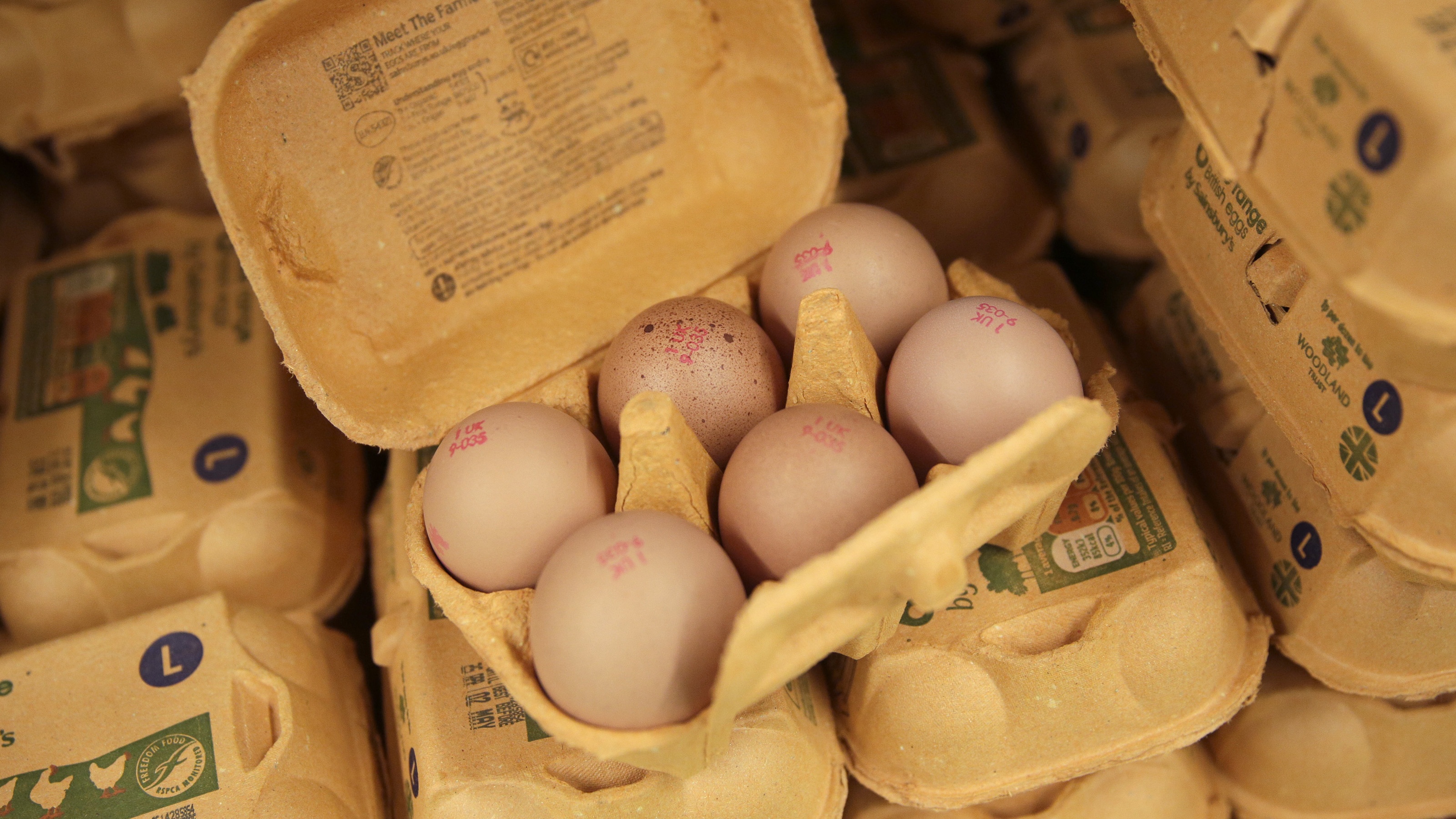 The UK’s Christmas egg shortage
The UK’s Christmas egg shortagefeature Supermarkets blame bird flu but farmers say unfair buying practices are driving them out of business
-
 Why Sainsbury’s chief Mike Coupe is stepping down
Why Sainsbury’s chief Mike Coupe is stepping downIn Depth The executive aggressively cut costs to compete with Aldi and Lidl, but failed to acquire Asda
-
 Sales of Christmas puddings down on 2018
Sales of Christmas puddings down on 2018Speed Read Supermarket data shows slump in demand for festive food
-
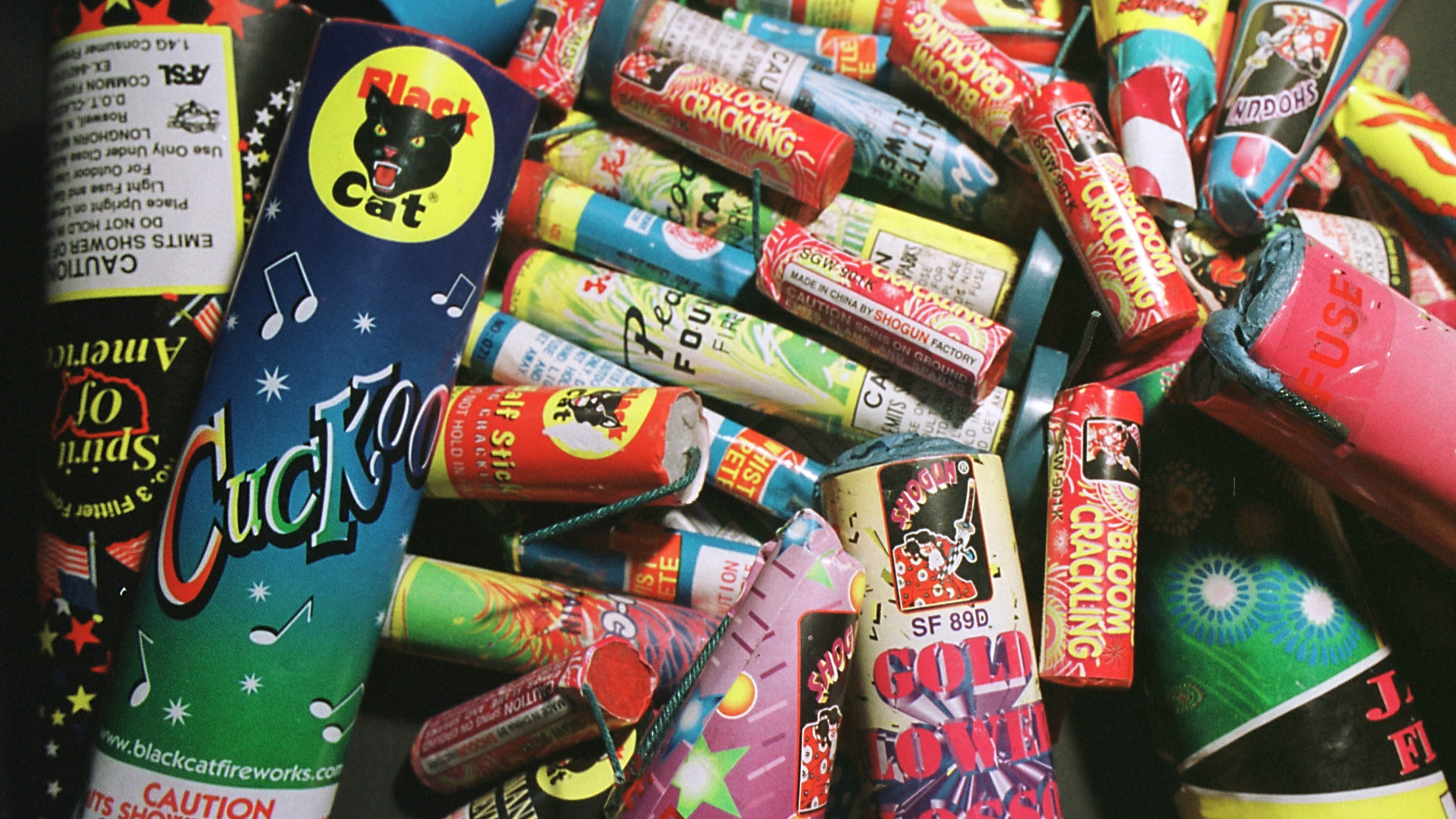 Should supermarkets stop selling fireworks?
Should supermarkets stop selling fireworks?Speed Read Sainsbury’s bans the bangers from all of its stores in response to fears for pets
-
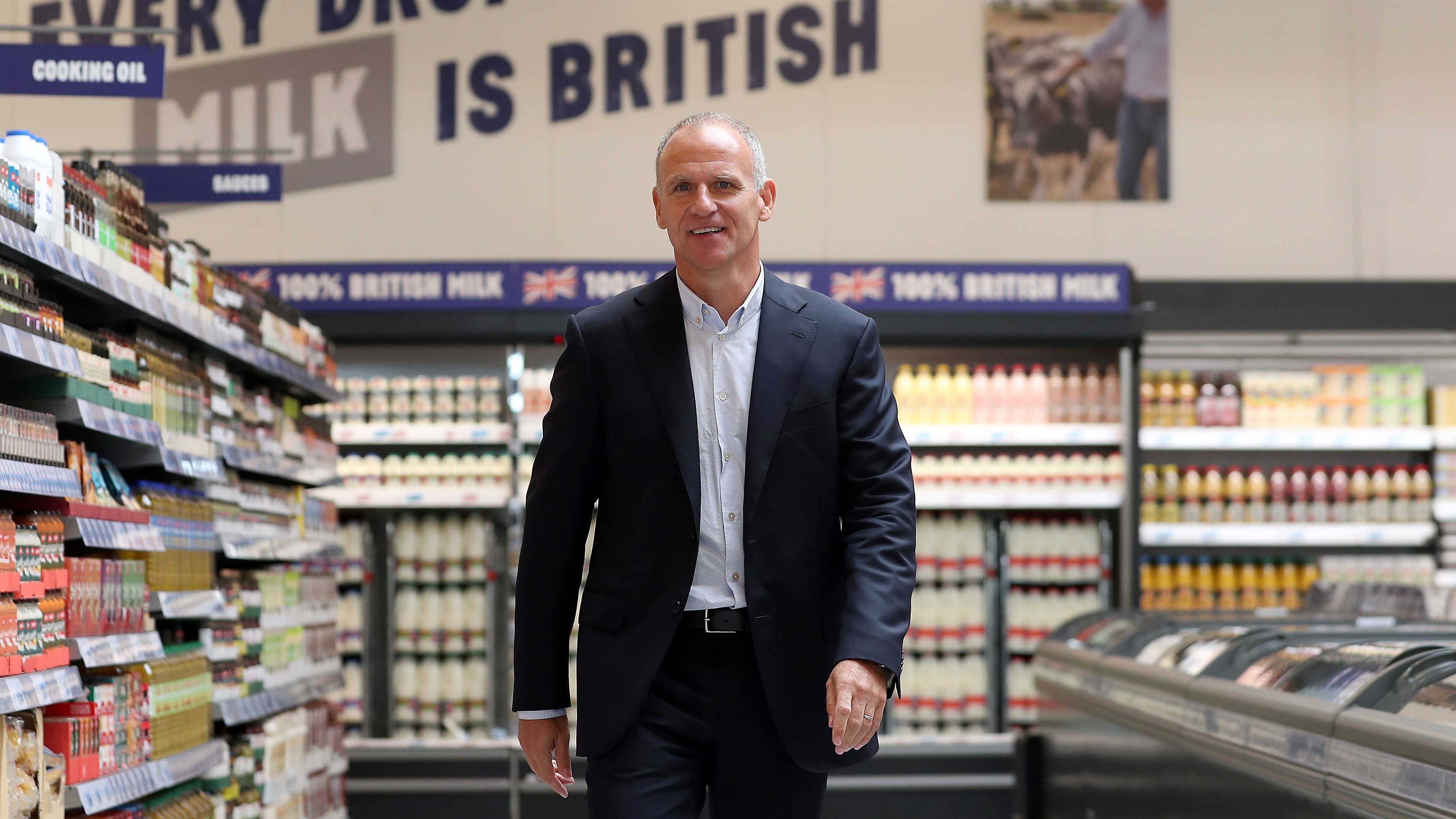 Why Tesco’s Dave Lewis is stepping down
Why Tesco’s Dave Lewis is stepping downSpeed Read The boss who turned Tesco’s fortunes around will leave CEO role in 2020
-
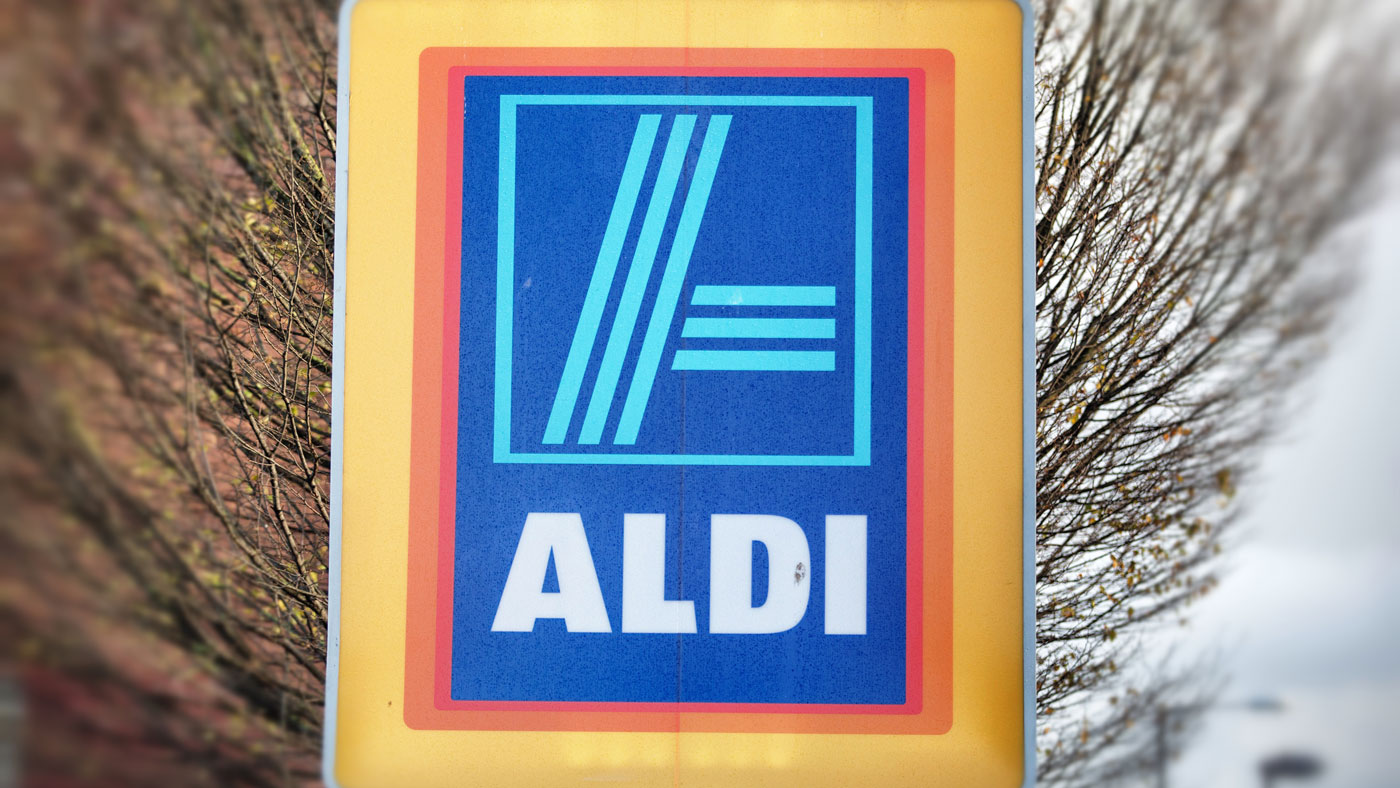 Why are profits collapsing at Aldi?
Why are profits collapsing at Aldi?Speed Read German discounter announces aggressive expansion despite sinking profits
-
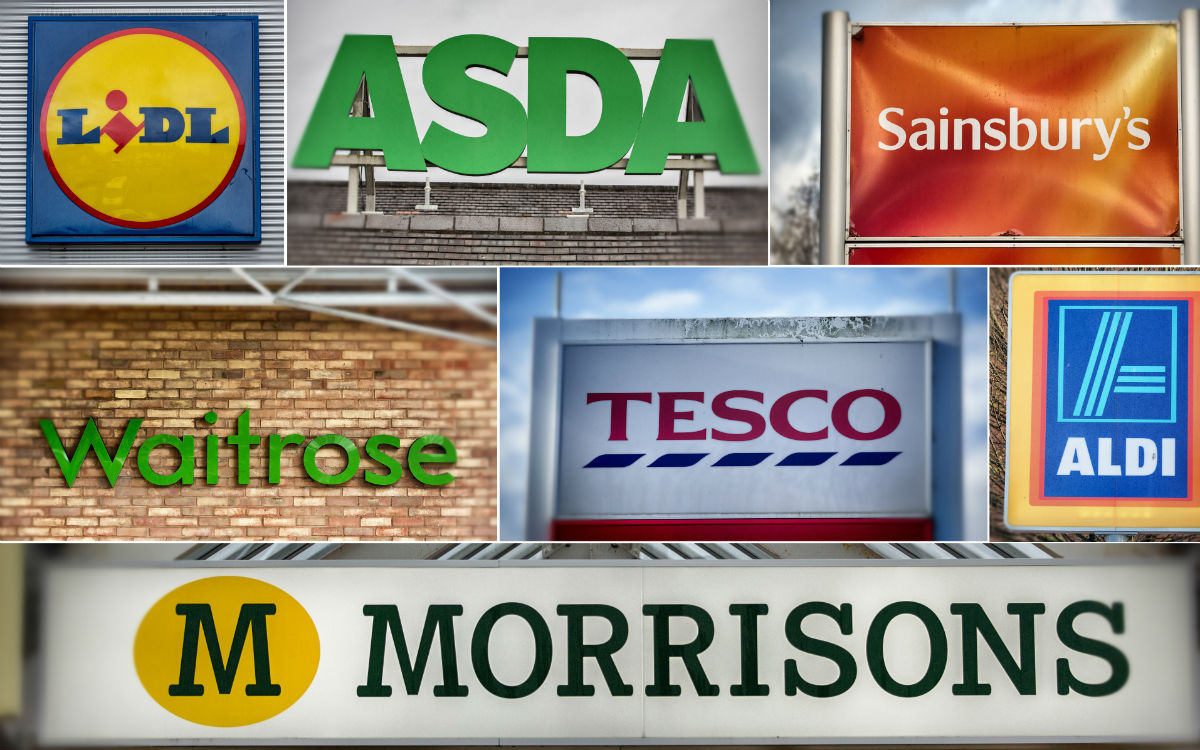 Why are supermarket sales flat?
Why are supermarket sales flat?Speed Read Brexit, fears of recession and price rises blamed for weak data
-
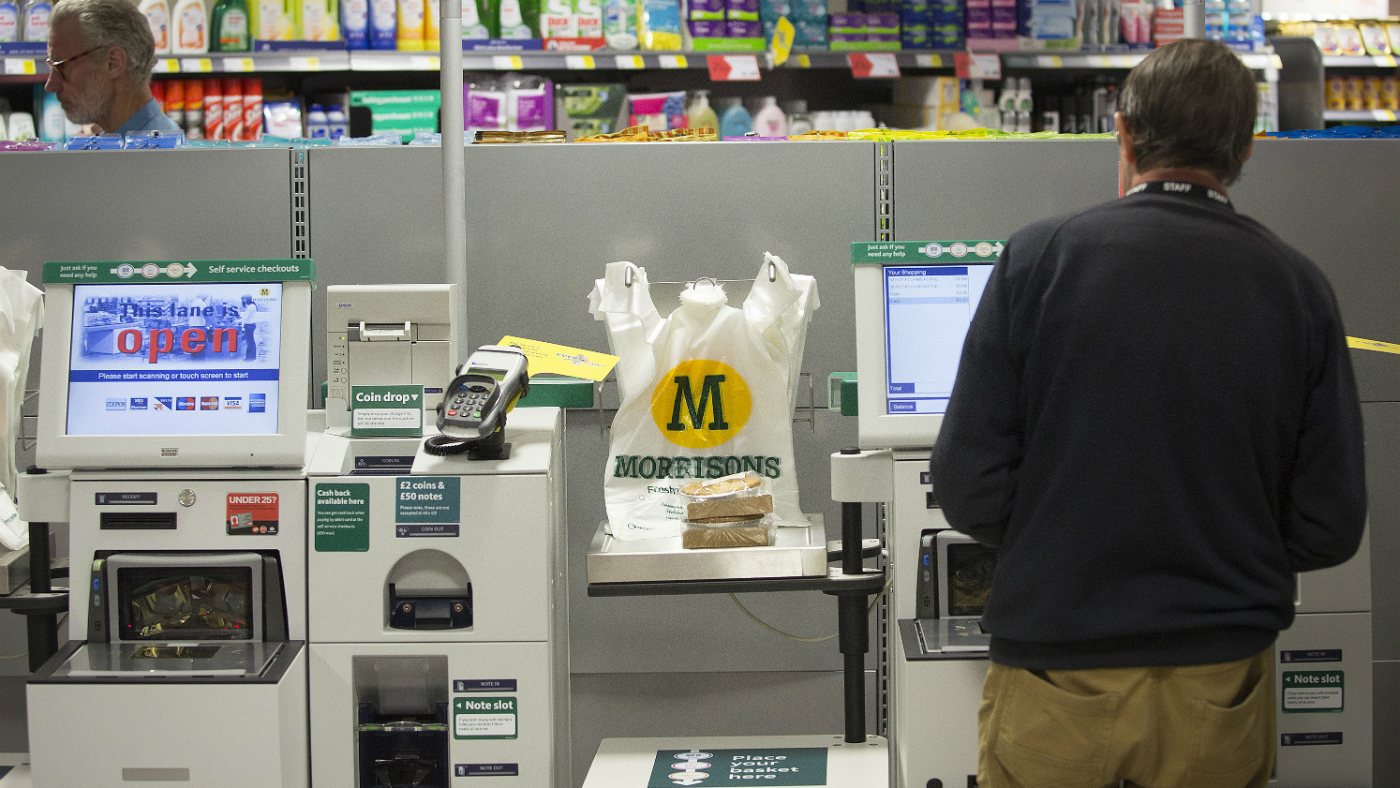 Will shoppers be charged for using self-service machines?
Will shoppers be charged for using self-service machines?In Depth MPs say 1p fee for using self-scan tills could raise £30m a year to ‘heal social divisions’